News
Will you go Fish Free this February?
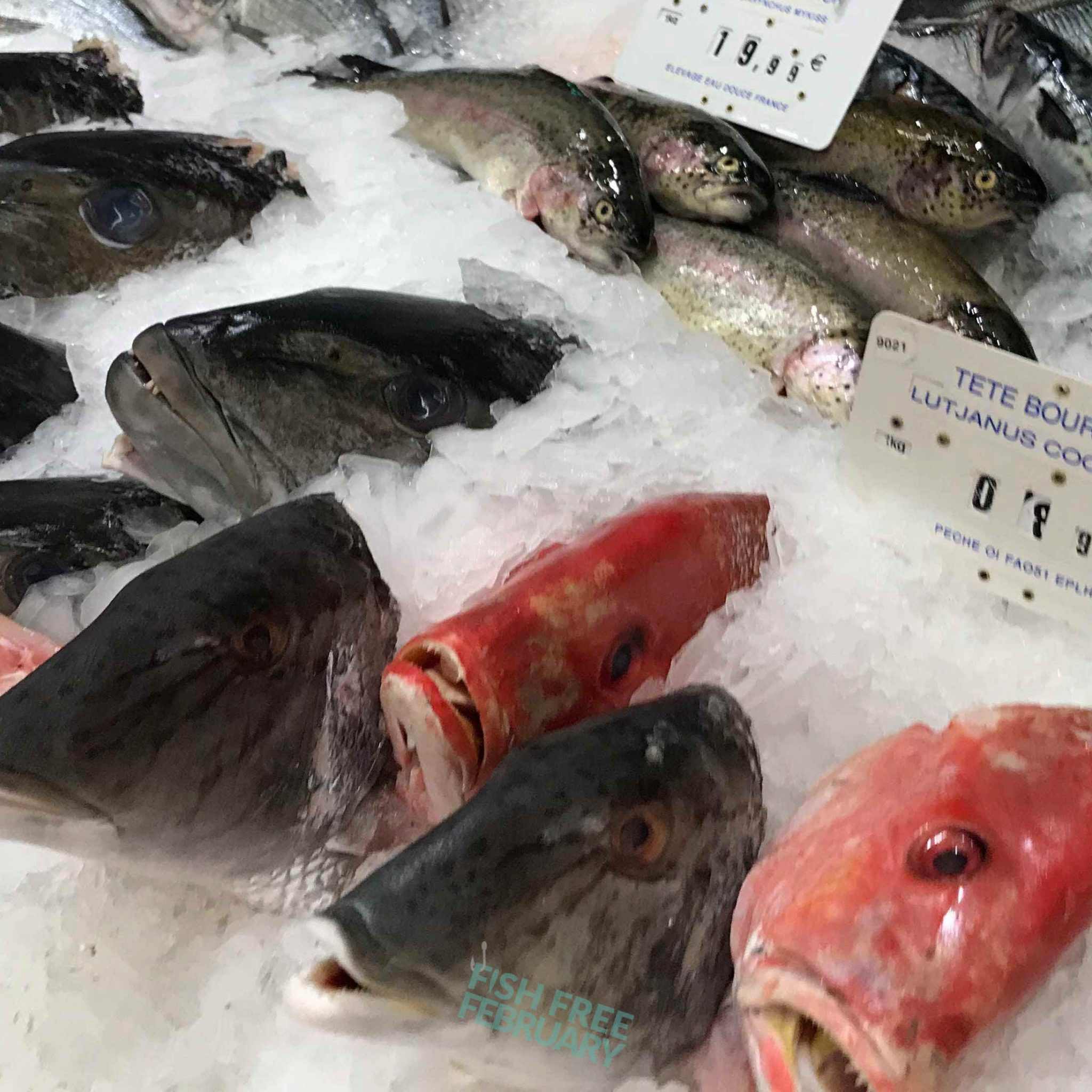
Marine biologist Simon Hilbourne and Oceans Festival UK are launching a new campaign called Fish Free February, challenging the public to protect our oceans by removing seafood from their diet for 29 days.
Fish Free February is a campaign organised by international marine conservationists to reduce our collective impact on the oceans and the life that they hold, in a simple and effective way. Throughout the month of February, #FishFreeFebruary will encourage people to discuss the wide range of issues associated with industrial fishing practices, putting the wellbeing of our oceans at the forefront of dietary decision-making.
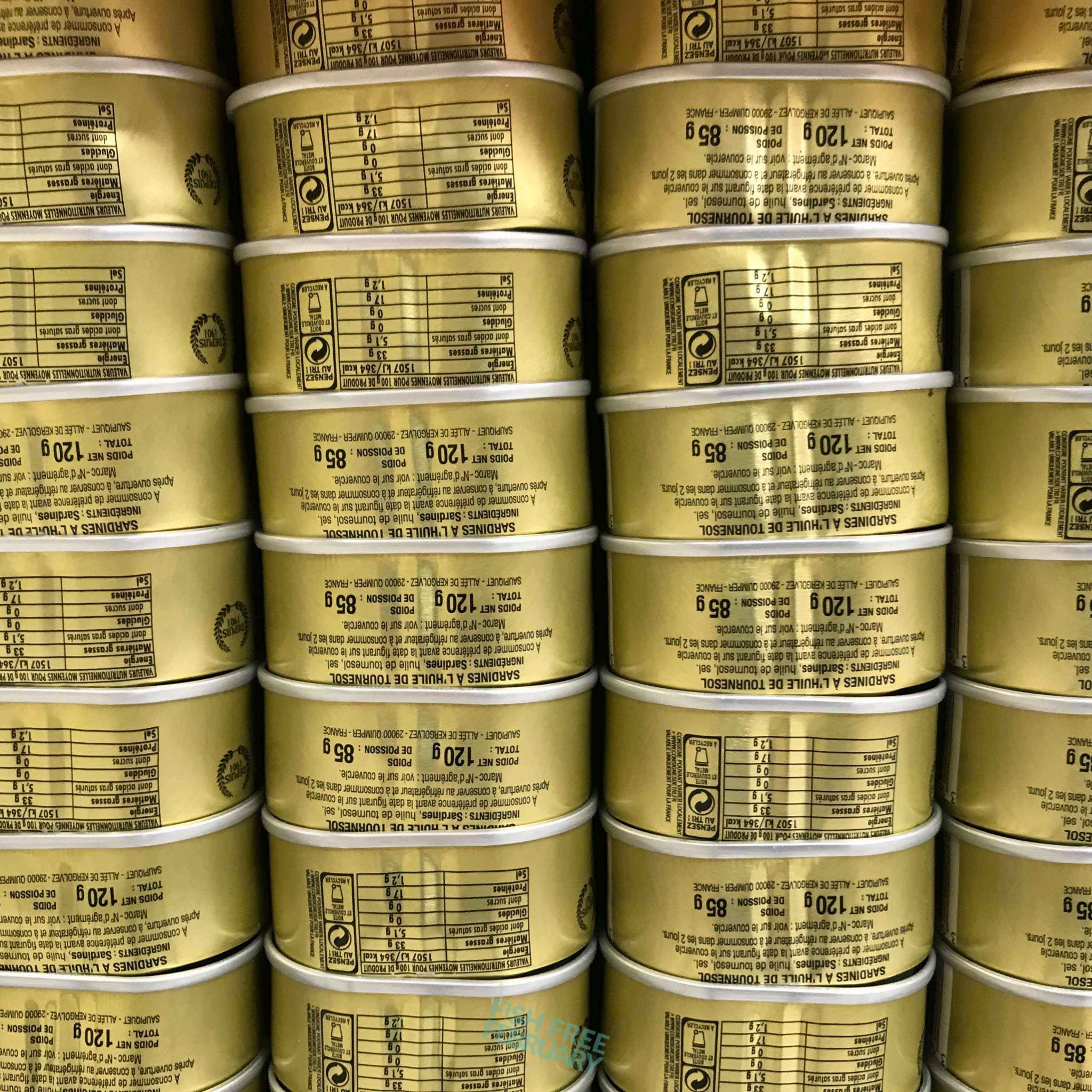
Not all fishing practices are bad – well-managed, small-scale fishing that uses selective fishing gears can be sustainable. However, when it comes to the majority of our seafood, this is not the case. We mostly rely on industrial fisheries which often prioritise profit over the wellbeing of our planet, resulting in multiple environmental challenges. Fish Free February will shed light on these challenges, create wider discussion around these issues, and offer solutions.
So what are the problems with fishing?
Overfishing: We are taking more than our fair share of fish, so much in fact that populations can’t repopulate fast enough. 90% of global fish stocks are fished to their maximum or overfished with an estimated 1-2.7 trillion fish caught annually for human consumption. Compare that to the 63 billion mammals and birds killed each year for food and it becomes clear that there aren’t plenty more fish in the sea.
Plastic pollution: Discarded fishing nets make up 46% of the plastic in the Great Pacific Garbage Patch, far more than plastic bags or straws. This is when fishing gear is abandoned at sea. This might be due to breakages, losing items overboard and in some cases old or broken fishing gear is purposely dumped into the sea. Just because there is not fisherman attached, doesn’t mean those nets, hooks and lines aren’t still lethal. Large pieces of plastic pollution like fishing nets break down into microplastics which are then ingested by marine life. In 2018 a study found 100% of wild and shop-bought mussels to contain plastic.
Destructive fishing practices: Fishing often doesn’t just kill the species that you want to eat, bycatch and non-specific fishing methods (such as dynamite, long lines, trawlers, gill nets and electric pulse nets) mean that other species end up dead as well. Dolphins, sharks, turtles, corals and many other fish species – they’re all caught up in this mess as well.
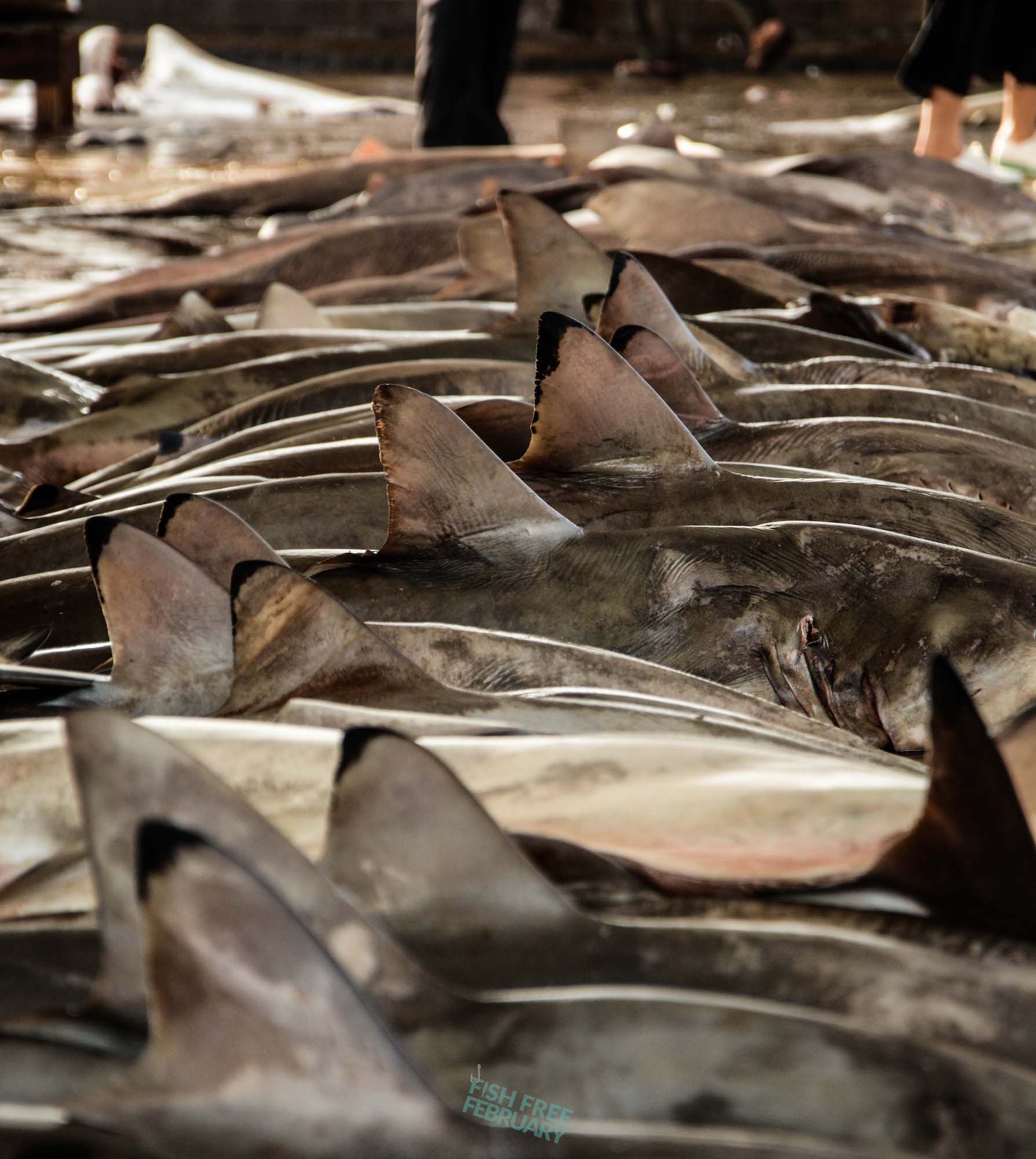
Mislabelling: That’s right, fish isn’t always what it says on the tin. A study by Oceana found that as much as one third of seafood samples in the US were not what they were labelled as in restaurants and stores. This can have huge implications on the environment and also human health, but ultimately it highlights that we need far more stringent regulation and monitoring in this industry.
Farmed fish (aquaculture): 40% of the seafood we eat is farmed, but creating seafood farms often involves destroying existing habitats and therefore has a high carbon footprint. Chemicals and diseases associated with seafood farming also impact the surrounding waters and eventually affect wild populations.
Food waste: The Scottish farmed salmon industry is highly wasteful, with around 20% of fish never reaching harvest due to mortalities and escapes during production, according to its own figures. If this level of waste remains unchecked, a large proportion of the wild fish sourced to feed its salmon is also being wasted.
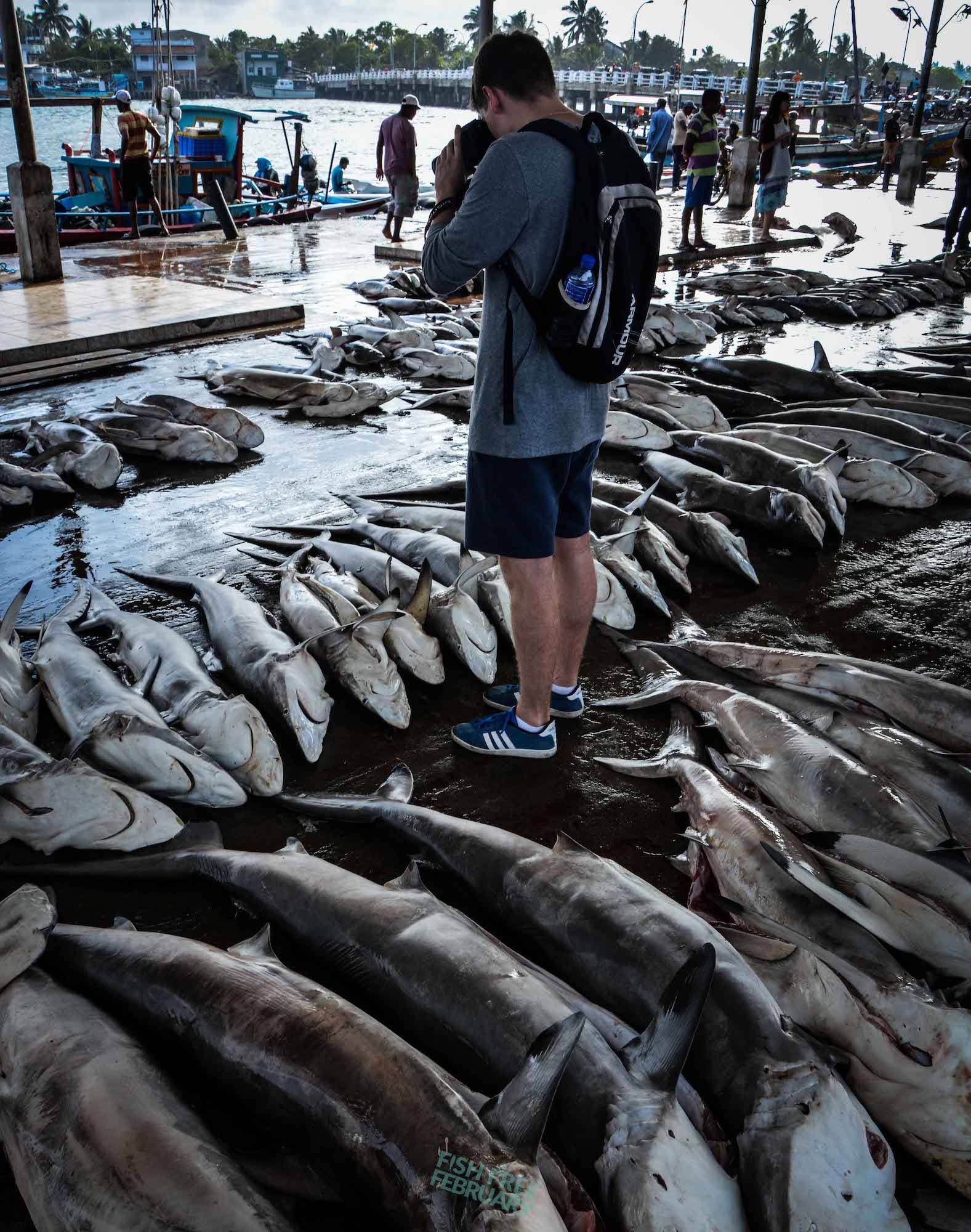
Human rights: In regions of the world such as South-East Asia, forced labour and human trafficking is rife within the fishing industry. It is very possible that the imported fish in our supermarkets has made its way from the sea to the shelves as a result of modern-day slavery.
Illegal fishing: Companies in the fishing industry don’t always follow the rules. As you might imagine, it can be fairly challenging to monitor the high-seas and currently illegal, unregulated and unreported fishing is widespread. This exacerbates the negative impact of all of the issues associated with industrial fishing and means that companies continue their dirty work and there is no justice for our oceans.
How will Fish Free February change any of that?
Fish Free February aims to result in one, or several, of the following outcomes:
Participants will…
- Commit to eradicating seafood from their diet for 29 days and focus on plant-based, sustainable alternative ways of eating.
- Consciously reduce the amount of seafood in their diet to limit the degree of their personal impact. If continuing to consume seafood after February, people are encouraged to purchase items that are certified by an independent sustainable fishing moderator, such as the Marine Stewardship Council. People can also focus on trying to purchase seafood from small-scale, local and sustainable fisheries.
- Increase the discussion surrounding seafood and fishing practices, to increase the level of knowledge in public consciousness.
- Ask questions about where the fish they are being sold or served came from. Holding retailers and restaurants responsible for the products they sell will put pressure on them to source seafood from sustainable fisheries.
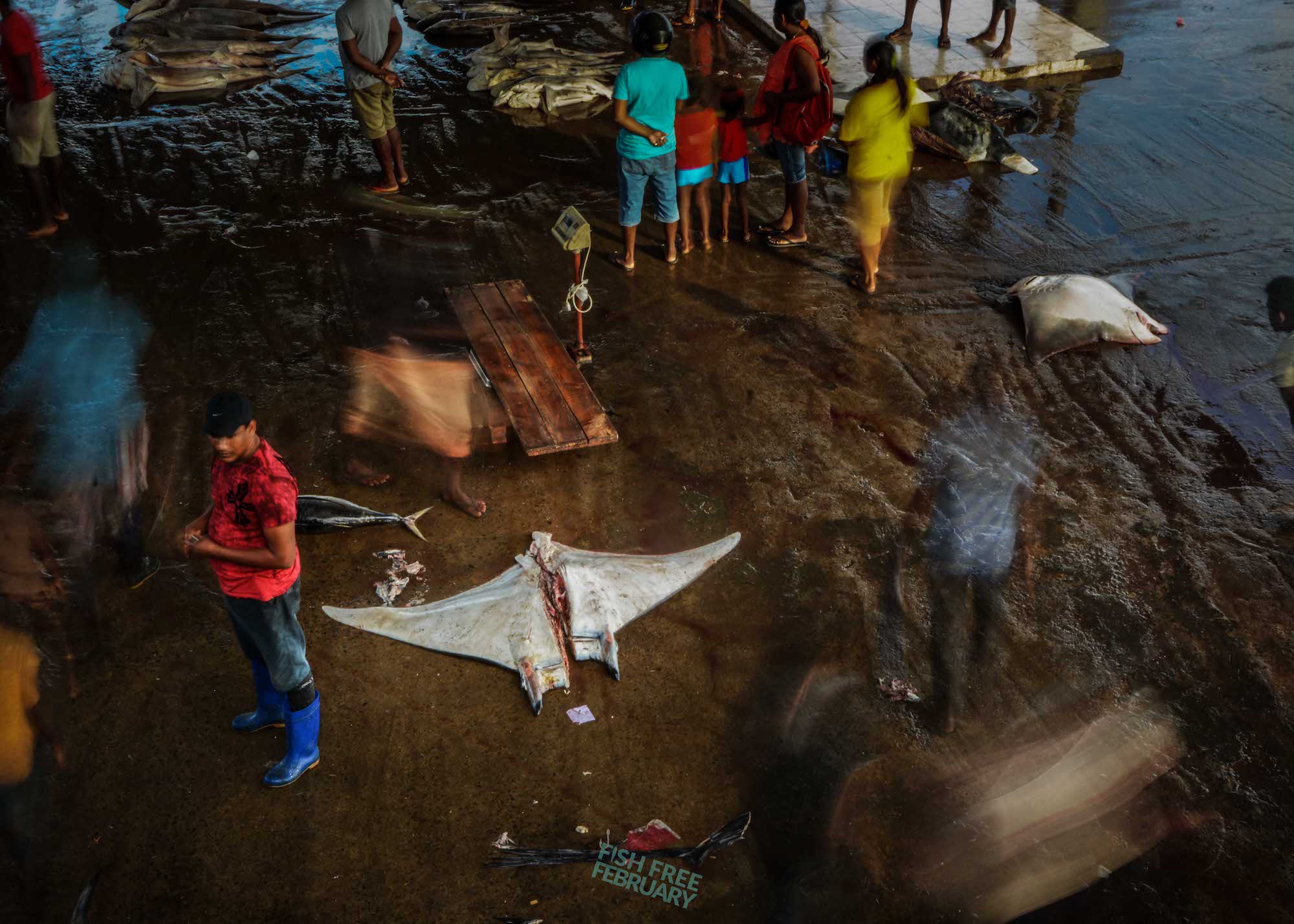
#FishFreeFebruary will send a clear message of protest against current standards of fishing and seafood farming. The ultimate goal is to generate a shift in the fishing industry and encourage a radical reduction in seafood consumption, opting for sustainable practices when fish is purchased. Additionally, Fish Free February will strengthen the connection that the public have with their food and to drive them to thoroughly consider where it has come from and how it has made its way to their plate.
“The fact of the matter is humans are taking far too many fish and other marine species from the sea. We simply must reduce the number of fish being caught. The best way to do that is to stop or greatly reduce eating seafood.” – Simon Hilbourne, Fish Free February Founder.
“We have the opportunity to tackle overfishing, plastic pollution and ecosystem collapse through the very simple act of eating less fish. If you weren’t quite able to commit to Veganuary or want another opportunity to do your part for the planet, please join the Fish Free February challenge!” – Jasmine Tribe, Founder of Oceans Festival UK.
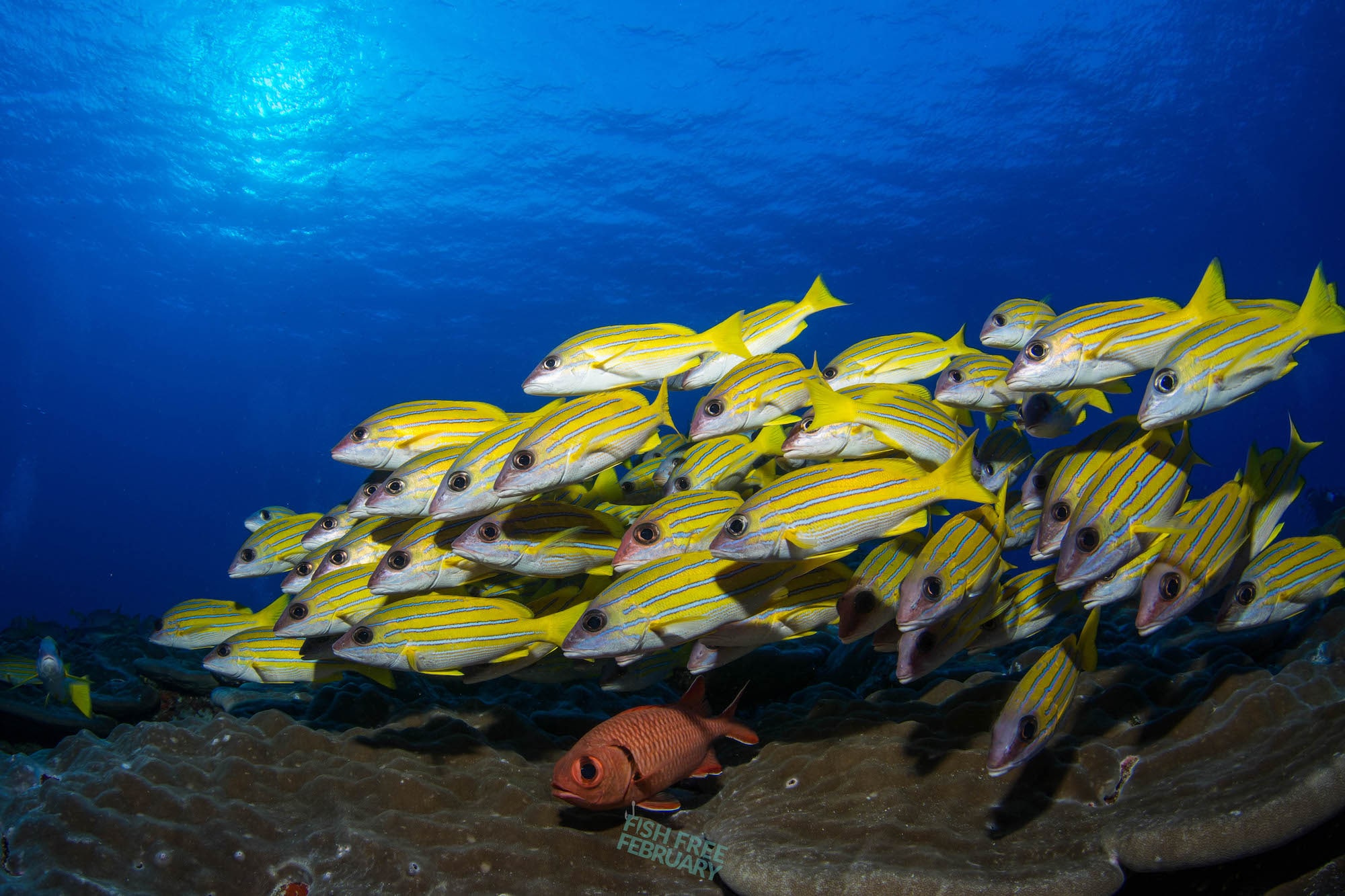
“The ecological balance of our oceans is under huge stress from overfishing and I’ll be championing #FishFreeFebruary to highlight this. With such a vast amount of ocean plastic coming from the fishing industry this is also a great opportunity to highlight the ‘hidden’ plastic pollution in our food chain.” – Natalie Fee, Founder of City to Sea and author of ‘How to Save the World for Free’.
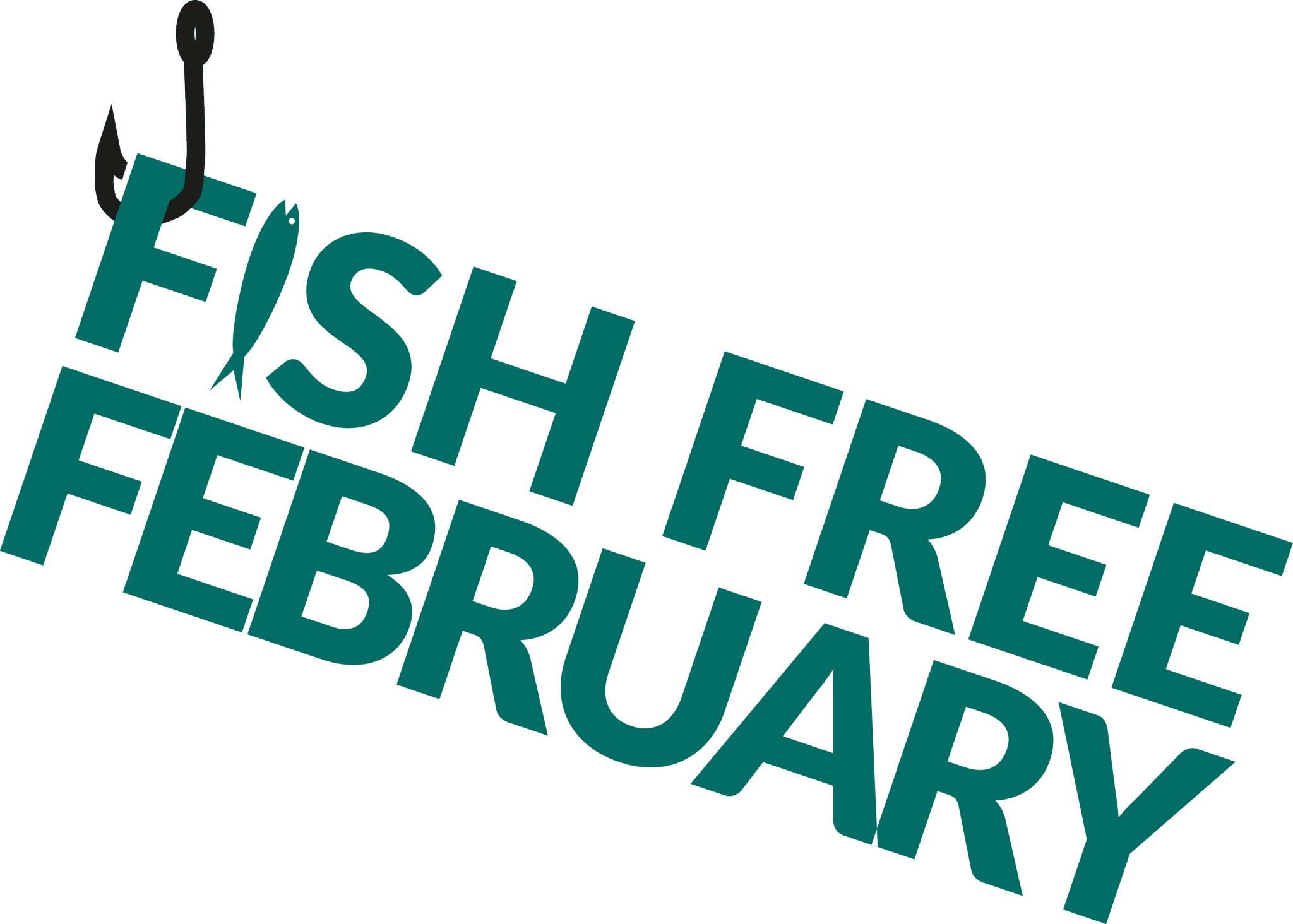 Pledge your support to go Fish Free this February at: www.fishfreefebruary.com/pledge.
Pledge your support to go Fish Free this February at: www.fishfreefebruary.com/pledge.
Images: Simon Hilbourne
Gear News
Introducing the TR-80, IR-50 and CS-30 Regulators from DYNAMICNORD

Whether you are a beginner or a professional diver – with the three new main regulators from DYNAMICNORD, everyone will find their favourite regulator. They all look super stylish.
Excellent performance with the TR-80
Quality and performance are the be-all and end-all for regulators. It is not for nothing that the TR stands for Tec Reg. The innovative design of the TR-80 guarantees absolute reliability – even in ice-cold waters.

Perfect breathing effort at 0.8 J/l / certified for diving in waters below 10 degrees / structural design made of solid brass for best cold protection / membrane-compensated design with dry seal of the first stage / reduced exhalation effort thanks to optimized exhalation membrane and bubble deflector / adjustable Venturi (dive/predive) and adjustment knob for individual inhalation comfort / innovative design of the front cover prevents free-flow in strong currents or when diving with scooters / design made of sandblasted brass, matt chrome finish / 2 HP and 4 LP outlets / mouthpiece made of high-quality, anti-allergic silicone for maximum comfort.


Amazing underwater adventures with the IR-50
The IR-50 is the top regulator for advanced and experienced divers. Natural breathing is the essence of this regulator.

Ideal breathing effort at 0.8 J/l /certified for diving in waters below 10 degrees / compensated membrane / adjustable venturi (dive/predive) and adjustment knob for individual inhalation comfort/ outlet valve and deflector for minimum exhalation effort and reduction of bubbles on the face / design made of sandblasted brass, matt chrome finish / 2 HP and 4 NP outlets / mouthpiece made of high-quality, anti-allergic silicone for maximum comfort.


The Workhorse – our CS-30
For diving centres and diving beginners – the workhorse stands for strong construction, reliability and robustness. Perfect for your training.

Optimal breathing effort at 0.8 J/l /recommended for diving in waters above 10 degrees / non-compensated piston / adjustable venturi (dive/predive) / outlet valve and deflector for minimum exhalation effort and reduction of bubbles on the face / design made of sandblasted brass, matt chrome finish / 1 HP and 3 NP outlets / mouthpiece made of high-quality, anti-allergic silicone for maximum comfort.


Octopus OP-30
The OP-30 is the ideal addition to all DYNAMICNORD regulators. It is identical in construction to the CS-30.

The TR-80, IR-50, CS-30 (DIN & INT) regulators and the Octopus OP-30 are available from DYNAMICNORD dealers and in the online store.
DYNAMICNORD – Your Outdoor Companion.
Marine Life & Conservation
Paul Watson Released as Denmark Blocks Japan’s Extradition Bid

Renowned anti-whaling activist Paul Watson has been released from custody in Greenland after spending five months in detention. Denmark’s Justice Ministry rejected Japan’s request for his extradition, citing insufficient guarantees that his time already served in custody would be credited against any potential sentence.
The 74-year-old Canadian-American was arrested on July 21 in Nuuk, Greenland’s capital, when his ship docked to refuel. His arrest was based on a 2012 Japanese warrant related to a 2010 encounter in Antarctic waters. Japan alleged Watson obstructed operations and caused damage to a whaling research ship during efforts to disrupt illegal whaling. Watson has consistently denied these claims, maintaining his commitment to marine conservation.
Denmark, which oversees extradition matters for Greenland, concluded that while the legal conditions for extradition were met, the lack of assurances from Japan regarding time-served credit made extradition untenable.
In a video shared by his foundation, Watson expressed gratitude and relief, saying, “After five months, it’s good to be out… and good to know they’re not sending me to Japan.” He added that the most difficult part of his time in custody was being separated from his two young sons.
Watson is a pioneering figure in marine conservation, known for founding the Captain Paul Watson Foundation in 2022 after decades of activism with the Sea Shepherd Conservation Society. His bold efforts to defend marine life have earned him widespread support, including from celebrities and conservationists. His work has also been featured in the acclaimed reality TV series Whale Wars.
Watson’s lawyer, Jonas Christoffersen, praised the decision, stating, “We are happy and relieved that Paul Watson is now free.” He added that Watson is eager to reunite with his family and continue his vital work.
The arrest occurred while Watson’s vessel, the M/Y John Paul DeJoria, was en route to the North Pacific with a team of 26 volunteers to intercept a Japanese whaling ship. His foundation described the arrest as politically motivated and emphasized that Watson’s actions were focused on ending illegal whaling practices.
Japan resumed commercial whaling in 2019 after leaving the International Whaling Commission, asserting that whale meat is a cultural tradition. Conservationists, however, continue to challenge these practices, highlighting their impact on marine ecosystems.
Despite the challenges, Watson remains steadfast in his mission to protect marine life and bring attention to whaling practices. His dedication to ocean conservation has made him a globally respected advocate for the environment.
-

 News2 months ago
News2 months agoIconic SS United States to become the World’s Largest Artificial Reef
-

 News3 months ago
News3 months agoBook Review – 52 Assignments: Underwater Photography
-

 Gear News3 months ago
Gear News3 months agoDYNAMICNORD – New German diving brand enters the British market
-

 News3 months ago
News3 months agoExploring Cenote El Pit: A Diver’s Dream
-

 Gear News3 months ago
Gear News3 months agoTry BARE drysuits (and maybe even win one!) this Friday with Sea & Sea at North West Dive Fest
-

 Marine Life & Conservation3 months ago
Marine Life & Conservation3 months agoBook Review: Coral Triangle Cameos
-

 Blogs2 months ago
Blogs2 months agoDive the Egyptian Red Sea this Autumn with Regaldive
-

 News3 months ago
News3 months ago2024 Ocean Art Underwater Photo Competition Announced















